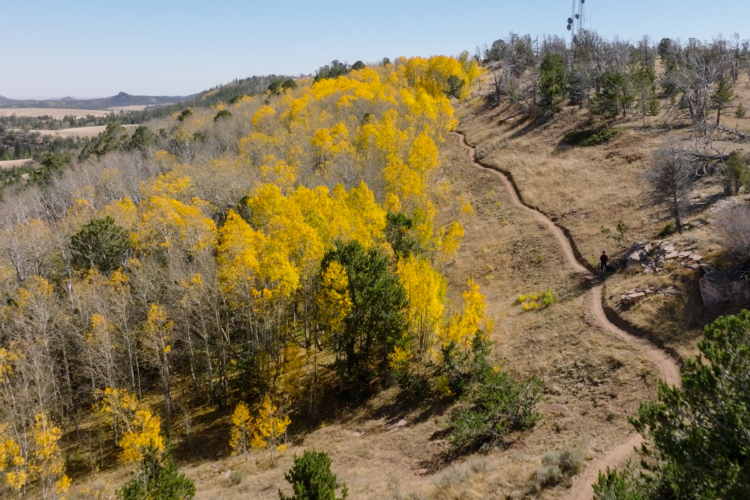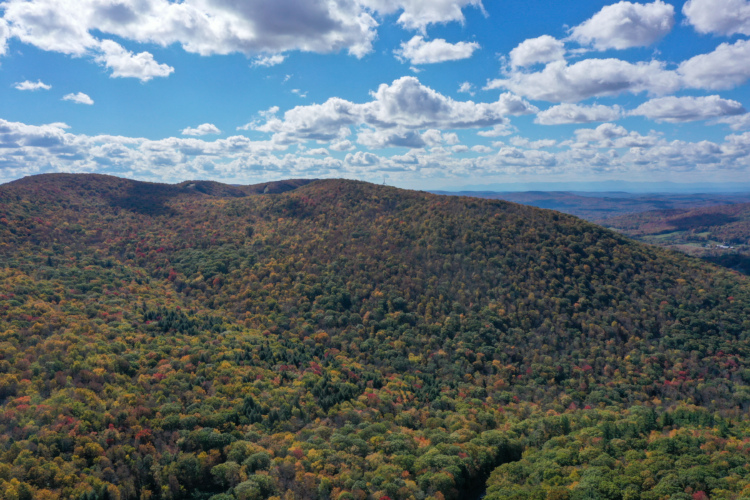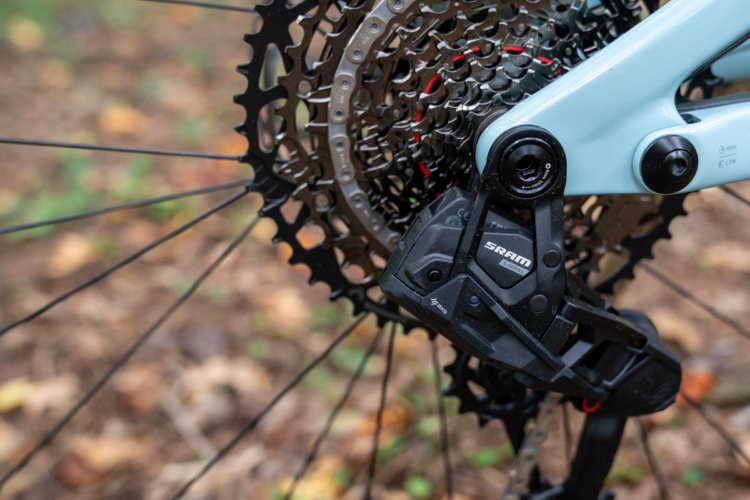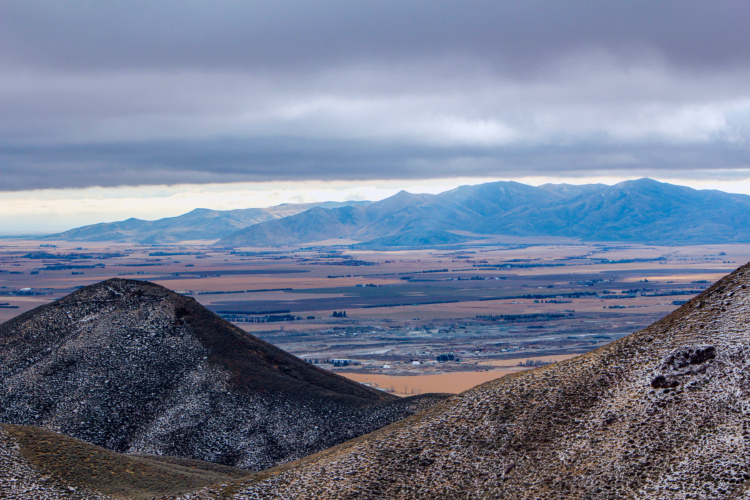
I am still coming off the rush of a weekend at Elevate, a women’s mountain bike summit at Kingdom Trails, New England’s beloved trail network in northern Vermont. Elevate was a joint effort by New England Mountain Bike Association (NEMBA), Vermont Mountain Bike Association (VMBA) and the Kingdom Trails Association (KTA). The event offered 100 female and gender expansive attendees two days of group rides and clinics, socializing and networking, and shredding some of the best singletrack on the East Coast. Women of all ages and abilities came from nine states and Canada to talk about bikes, practice cornering or picking a line, groan on climbs, hoot on descents, and clink beer glasses at Mike’s Tiki Bar. We rode, we communed, and we learned… perhaps more than we had expected.
The Burke Mountain Hotel conference room was quiet as a forest glade as our keynote speaker’s voice trembled a little telling her story. Brooke Goudy is a Black, female, totally badass mountain biker and cycling advocate from Denver. She is breaking stereotypes, seeking adventure and speaking inspirationally around the world. In her speech and interactions with attendees all weekend, Goudy offered a message that expressed perfectly why we were at Elevate: to build a strong, diverse mountain bike community.
“If I learn to ride bikes, he’ll love me as much as he loves that bike!” Goudy confessed, laughing. We cackled along with her as she described getting into mountain biking while dating a pro racer. “I LOVE to ride bikes. But I didn’t see many women and definitely not many Black women,” she said. “So, what do I do? I want to share this incredible thing with my people. I want to build a community that I want to see. It wasn’t easy as I thought it would be.”
Her story was one that we, as women in mountain biking, all recognized. Goudy described the challenge of often being the only one, the “other,” and relying on her strength and courage to represent and motivate change.

“I want to show that someone like me—a woman, a woman of color, a little bit ‘thicker’ woman—can go out and have extraordinary adventures and be successful. I put myself out there to let people know that bikes were built for everyone. We just have to be brave. All the things we do off of the trail—a lot of hard shit! the resilience and courage of being a mom, a partner, a working professional—it makes climbing a hill easy.”
As Goudy talked about the benefits of a diverse community, she asked us to look around—a sea of white faces—and notice who was not in the room. She reminded us how it felt to be the only one, the courage it took just to be present, and what it felt like to be welcomed. Her message resonated deeply with us, a group of women sharing our passion for what is still a very pale, very bro sport.
Kenzie Fuqua is DEI Coordinator for the almost 10,000-member VMBA. “We have a DEI committee that drives a boatload of initiatives, not only having to do with women, but all user groups,” she said. “We’re putting a lot of time, energy, and money into changing the landscape of what mountain biking looks like in our region and hope to see this catch on elsewhere.” According to Fuqua, about 25% of VMBA members identify as cisgender females. “This has grown a lot in the last five years, but we want to get it to 50/50.”

“I met more courageous riders then I could have dreamed of,” said Mary McCarthy of her experience at Elevate. McCarthy started riding seven years ago at age 42 on a $400 Craigslist hardtail. Today, she is Chapter President of Greater Boston NEMBA. Her takeaway from Goudy was that it takes more than just an invitation to nurture diversity.
“There’s welcoming and there’s belonging,” says McCarthy. “You need to pat the chair beside you and say, ‘You belong here. I’ve saved a seat for you.’” This feeling of inclusion was a gift McCarthy received on her very first NEMBA ride. “I was told I was an exceptional rider. I had exceptional skill and a unique gift for this sport.” She laughs. “I believed them! Now that I have led beginner rides for eight years and heard ride leaders welcome people in the exact same way, I understand that sense of belonging can ignite someone’s confidence, hope, and trust to try very difficult physical, emotional and mental things.”
Many women who love mountain biking enjoy co-ed rides and have learned a lot from male mentors. “I’m lucky to belong to a chapter of enlightened humans, where I don’t feel genderized or mansplained,” says McCarthy. “But I know this is not the experience of all people introduced to mountain biking. I have witnessed something very special happen when folks are able to relax and feel safe enough to take risks.” For the attendees, Elevate was our safe space to belong, to enjoy and learn more about mountain biking, to take risks while not feeling intimidated or uncomfortable, and even allow ourselves to step up and be leaders in situations where we would normally defer to men.
Nicole Freedman, Executive Director of 10,000-member NEMBA and former Olympic cyclist, was impressed by the impact Elevate had on attendees. “For many it was a powerful experience to connect with like-minded people. Women and gender expansive mountain bikers are still a significant minority in the sport, so carving out a weekend just for them was incredibly special.”

In Freedman’s nearly 30 years in cycling, she is struck by the many women who feel discouraged by early experiences.
“It’s typical to find themselves on a group ride that is too fast, mostly men, and they struggle to keep up. It can lead to long-lasting negative feelings, a sense of not belonging and of not being a real mountain biker.” She adds that when we introduce children to the sport, we carefully find the right group and level to ensure an encouraging start.
“Elevate was a chance for attendees to reset and know that they are mountain bikers. They got to own the sport for the weekend.” Freedman hopes many return to their communities and duplicate the experience by leading rides for women and gender expansive cyclists, so more people have a positive introduction to mountain biking.







0 Comments